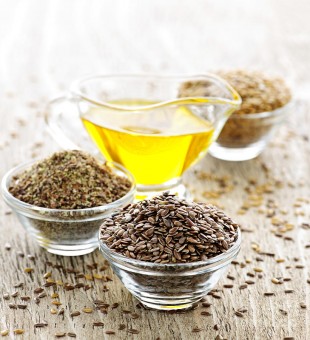Linseed oil is extracted from little, brown seeds of common flax. Certainly, everyone saw this plant at least once. Besides, flax seeds are available in herbal shops and pharmacies. We will find it under the name flaxseed or linseed. By buying proper amount of seeds, we can make some home made linseed oil. However, if you do not have proper tools to do that, then you sadly have to buy it online or in shops.
Currently, there are available specialistic oil presses. Those are small food processors resembling bread machine and equipped in a software and control panel. Presses are really simple in use. And how do they work? The appliance squeezes oil through crashing seeds; their remnants are instantly removed in a form of turnings, which can be reused for, e.g. flour. Oil is cold and has no chemical substances; in the bowl with oil can gather crust – it is absolutely normal. Press in a matter of an hour squeezes about 6.6 Ib. Fact is that the amount of oil depends on the oil content in the plant. When we want to extract natural linseed oil, we can also go to press or oil refinery. We will buy there 100% ecological, unrefined and cold presses product. And in the meanwhile we will spend some nice day; some oil refineries are placed on the territory of open-air museums.
Why is linseed oil so desirable by women? This product consists of many valuable substances. There are present Omega-3, Omega-6 and Omega-9 acids and vitamin E. All of those ingredients are responsible for proper growth and functioning of human body. It prevents many diseases, beneficially influences skin and hair, improves concentration and memory, is beneficial for pregnant women and provide health to men and women. How should we use pressed or bought by us original linseed oil?
You can drink or add linseed oil to salads everyday. It is also great for make-up removal of waterproof make-up and face cleanse. Linseed oil moisturises and nourishes nails and at the same time softens cuticles. It helps with acne and skin irritations of face, eliminates inflammations and prevents blackheads. It moisturises and regenerates damaged epidermis. In an equally effective way linseed oil conditions hair and scalp. It smoothers frizzing and dry hair, seals hair cuticles, prevents split ends, protects streaks against UVA and UVB radiation, helps with dandruff and other scalp diseases.
